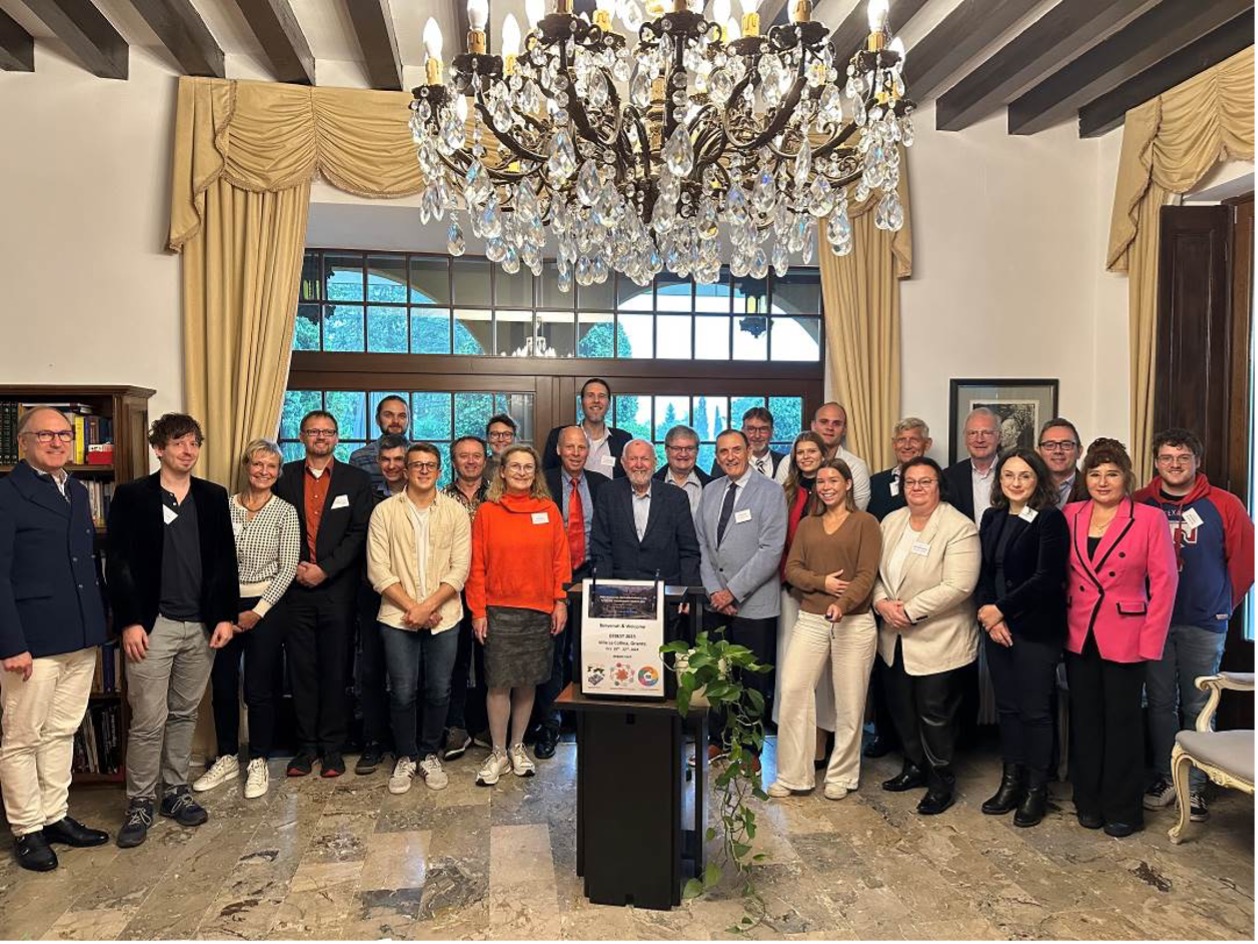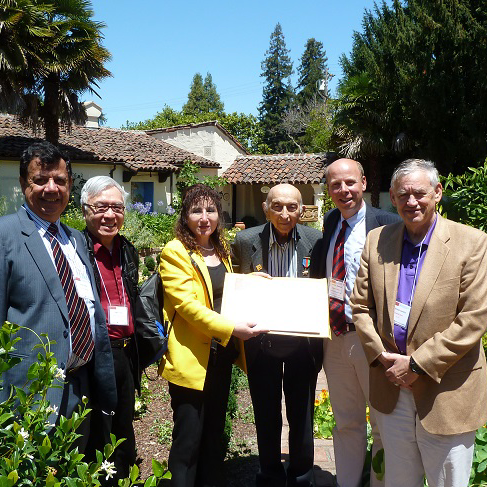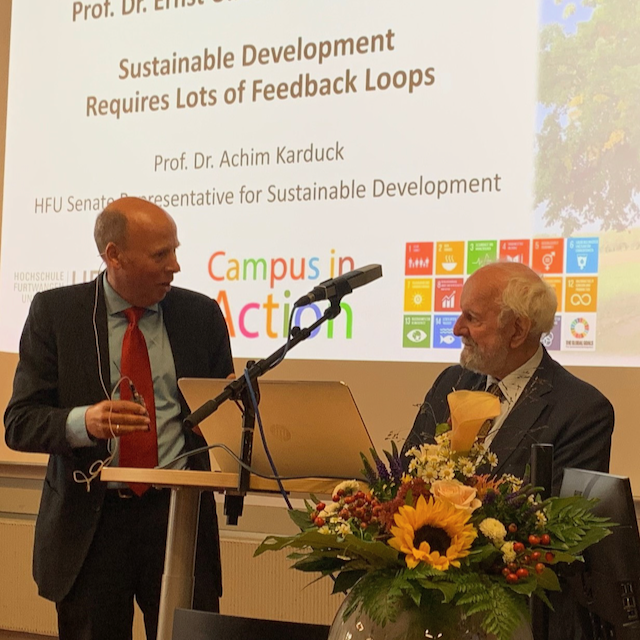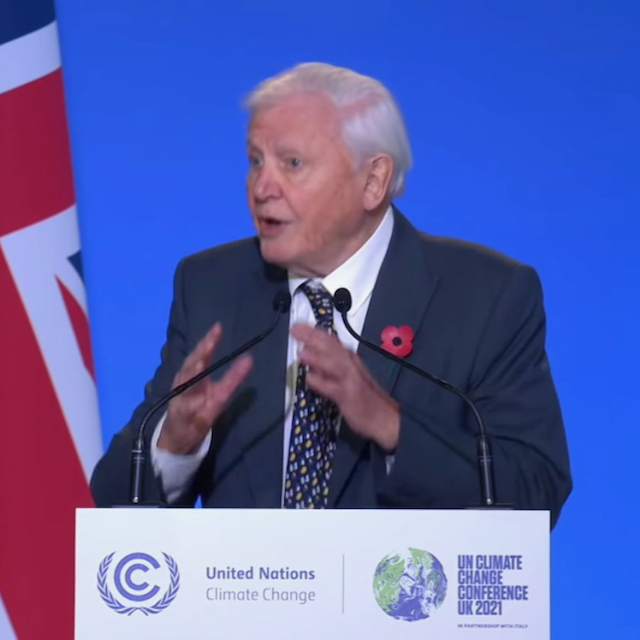The result of DEBEST 2023 is the DEBEST Cadenabbia Agenda with the focus on Trust in Our Digital Age. Trust is essential for the well-being of each human and our societies and economies. Trust is the basis for fair-play between the nations on our common planet earth.
1. Preamble
a. Our world is an imperfect place. People have always summoned technologies to better their lives. Our concern must be that the technologies we use live up to this responsibility to improve the well-being of all individuals.
b. We are facing major challenges and have to solve wicked problems. Therefore, problems need to be looked at from a holistic perspective.
2. Principles
a. Technologies should be rewarding, benevolent, convenient, fair, trustworthy, accountable, affordable, accessible, modular, distributed, adaptable.
b. Trust requires time to be developed. Individuals will only trust technology if it exhibits benevolent criteria over time.
c. The benefits of technology need to be distributed in a fair manner
d. Digital solutions need to be developed and used according to true costs recognizing externalities.
e. Solutions have to be science-based taking total costs into account.
f. Everything is a resource.
g. We need solutions not bandaids.
h. Digital solutions should be developed with a participatory approach.
i. Technology serves best when it augments the human factor. Especially in the innovation process and in educational material.
j. Technologies can divide and alienate. To minimize existing and to avoid new technology induced barriers, solutions need to be accessible, inclusive, explainable and understandable.
k. Digital technologies help to prevent the excession of the carrying capacities of earth’s systems and cycles.
3. Approaches we propose
a. The collaboration between humans and digital technologies will redefine boundaries of daily life and work. This requires new forms of teaching and learning to live up to the well-being of all individuals.
b. Redesign “The winner takes it all”. Ensure that this “law” of the digital platform economy is summoned by checks and balances. Account for values and principles of each individual and the societies.
c. System dynamics and 360 degree thinking need to be taught, considered, and scoped so that people understand the casualties of their actions.
d. Critical thinking with regard to system boundaries is needed.
e. Regulations are needed to make the best use of the possibilities technologies offer.
f. In engineering and science as well as in daily and professional life, always put humans first. In particular, their essence of being human and their needs using human-centered design approaches.
g. To communicate and help individuals to understand the values and principles of their society we can use storytelling and games.
h. Develop communication, negotiation, and argumentation methods to effectively and continuously establish trust in the digital future.
i. Prioritize “quality innovation” with digital technologies. Innovations need to enhance individual, social, and environmental well-being. It is self-evident that such innovations are sustainable.
[Download DEBEST Cadenabbia Agenda]
The Context of DEBEST Cadennabia Agenda
The DEBEST 2023 (Digital Ecosystems, Blockchain Evolution, and Sustainable Tranformation, www.debest.tech) think-tank conference took place from October 18-22 2023 at Villa La Collina, Griante-Cadenabbia, Lago di Como, Italy. A group of world class experts in Digital Ecosystems and Sustainable Transformation from Science, Education, and Innovation Adoption attended. Our Digital Age offers great opportunities for the challenges humans, our societies and economies, and our living space earth faces. The presentations, debates, and statements have been video captured. The result is the DEBEST Cadenabbia Agenda with the focus on Trust in Our Digital Age. Trust is essential for the well-being of each human and our societies and economies. Trust is the basis for fair-play between the nations on our common planet earth. Villa La Collina used to be the summer residence of Konrad Adenauer, the first chancellor of Germany after WWII. It is a place, where mutual trust has always been the basis, located in a beautiful ecosystem. For DEBEST 2023, Villa La Collina as a place of trust was the perfect venue place. We welcome you to collaborate.
 Led by: Martin Anda, Stefanie Betz, Andrea Back, Lutz Bauer, Elizabeth Chang, Ernesto Damiani, Gregor C. Falk, Wolfgang Gräther, Achim P. Karduck, Irma Lindt, Marc Oliver Pahl, Sinan Tumer, Christian Wagner, Ernst Ulrich von Weizsäcker, with the support of all DEBEST participants.
Led by: Martin Anda, Stefanie Betz, Andrea Back, Lutz Bauer, Elizabeth Chang, Ernesto Damiani, Gregor C. Falk, Wolfgang Gräther, Achim P. Karduck, Irma Lindt, Marc Oliver Pahl, Sinan Tumer, Christian Wagner, Ernst Ulrich von Weizsäcker, with the support of all DEBEST participants.
[Statement of Ernst Ulrich von Weizsäcker for DEBEST 2023]
[Summary of Achim P. Karduck at Villa La Collina]
[DEBEST keynotes, debates, and statements at Villa La Collina]
Previous Statements
The DEBEST Cadenabbia Agenda focuses on Trust and Well-Being in Our Digital Age, which is the fundamental basis as well for achieving each of the 17 UN SDG (Sustainable Development Goals).
We like to highlight three previous distinguished statements as well: from the late Professor Lotfi Zadeh (Honorary Keynote at IEEE DEST 2013, Menlo Park) and the conversation with Professor Ernst Ulrich von Weizsäcker with Professor Achim P. Karduck.
In addition, the link to the inspiring keynote of Sir David Attenborough at COP26 in Glasgow is included as well

Late Prof Lofti Zadeh
The DEBEST conference series takes place in memory of Professor Lotfi Zadeh of Berkeley University (1921-2017). He was a pioneer as the founder of the first Computer Science program worldwide in 1967 at Berkeley University and as the father of Fuzzy Logic. Late Professor Lotfi Zadeh was linked passionately to our DEST conference series. He departed from Black and White reasoning – or the “this is good, this is bad” – to the much more complex nature of our challenges and the required future perspectives for sustainable transformation to a quality future for all. Please refer to the interview with Professor Lofti Zadehfor the future perspectives on Sustainability and ICT, provided after his keynote at our DEST conference at Allied Arts Guild in Menlo Park, Silicon Valley.

Ernst Ulrich von Weizsäcker
Professor Ernst Ulrich von Weizsäcker is one of the world’s most distinguished academics in the field of sustainable development. He served over decades in responsible positions in science, politics, and international organizations, such as The German Parliament, the UN, and as the Co-President of The Club of Rome. In Factor 5 he laid out, how the world economy could move to a trajectory path that is 5-times, or even x-times, more resource efficient than today. All countries of the world should e.g. be given per capita permits of using the atmosphere at an identical level. Together with the newest technological potential, exchanging permits would be a key for balancing and adjusting the emission and resource usage at the needed global scale. With Professor Weizsäcker´s approach, the usage of environmental resources would be finally given a fair price, together with a fair trading of resources. The approach is based on the potential of the newest technologies, such as the Green PV/Hydrogen Energy Ecosystems. Please refer to the perspective dialogue with Professor Ernst Ulrich from Weizsäcker on Quality Innovations.

Sir David Attenborough
Sir David Attenborough´s Opening Address for COP26 in Glasgow presents with all his wisdom. knowledge, and passion, what is at stake and the actions required to „Rewrite Our Story“:
Sir David Attenborough´s opening address for COP26 in Glasgow presented with all his wisdom, knowledge and passion, what is at stake and the actions required to “Rewrite Our Story”. David Attenborough, People’s Advocate for #COP26, Address to World Leaders | Climate Action - YouTube
Please refer as well the video statements about the link between Digital Ecosystems and Sustainable Development from key participants at IEEE DEST in Menlo Park, Silicon Valley, USA [Video Statements].